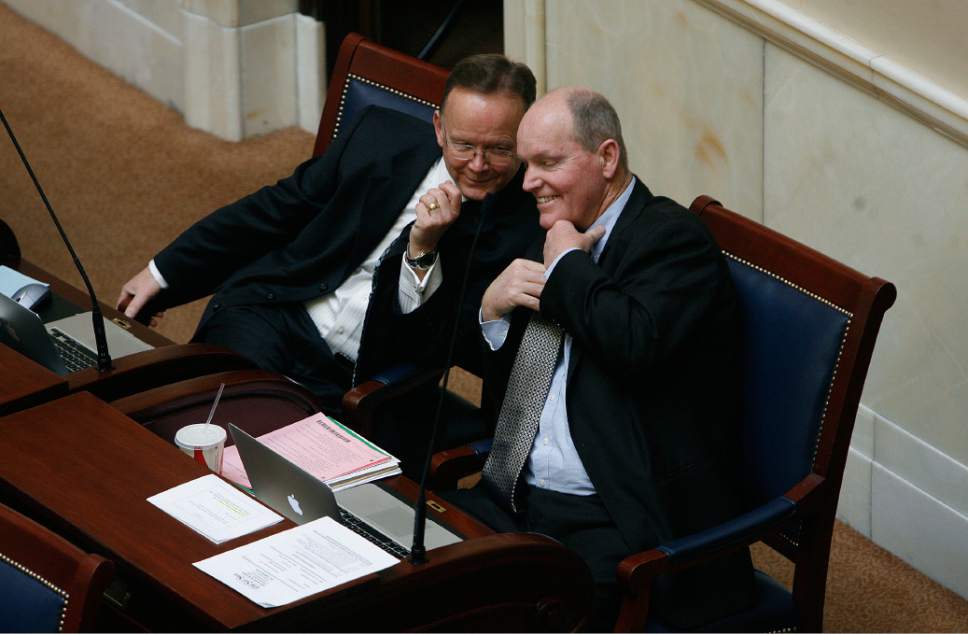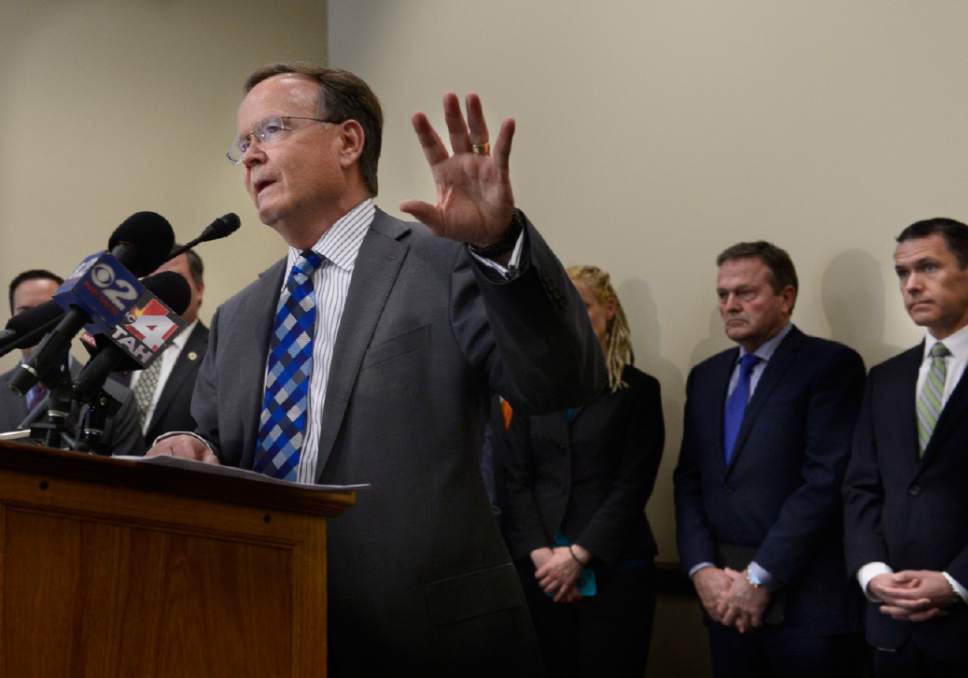This is an archived article that was published on sltrib.com in 2017, and information in the article may be outdated. It is provided only for personal research purposes and may not be reprinted.
If there is a problem with Utah's sex education law, Sen. Stuart Adams said Tuesday, it should be the Legislature, and not the courts, that fixes it.
"I don't really love the fact that courts have the opportunity to legislate," said Adams, R-Layton. "We need to do that job."
Adams was referring to a lawsuit filed against the Utah Board of Education by Equality Utah, which challenges a prohibition in Utah law against "the advocacy of homosexuality" during classroom discussions.
The senator is sponsoring legislation this year, SB196, that would strike the homosexuality provision from law, while preserving abstinence before marriage and fidelity after marriage as the basis of sex education within the state.
SB196 was scheduled for its first hearing Monday, but was removed from the agenda of the Senate Education Committee. Adams did not say why the bill was pulled from Monday's agenda, but added that he hopes to present the bill in committee within the next few days.
His bill is intended, he said, to update the Utah code to comply with U.S. Supreme Court rulings on LGBT relationships, including the 2015 Obergefell v Hodges case that legalized same-sex marriages nationwide.
But the Equality Utah lawsuit, Adams said, also serves as motivation for his proposal.
"I think, without question, the reason we're looking at this is because Equality Utah has brought up this issue,' he said.
The lawsuit claims that Utah's so-called "No Promo Homo" law discriminates against lesbian, gay, bisexual and transgender individuals by mandating an anti-LGBT school curriculum.
"The anti-gay school laws were enacted in order to express moral disapproval of 'homosexuality' and of LGBT persons," court papers say. "They do not serve any legitimate state interest."
Troy Williams, executive director of Equality Utah, said Monday that his team was evaluating the language of SB196 and not yet prepared to comment on the legislation.
If the bill passes, teachers would still be prohibited from encouraging or describing sexual activity — regardless of orientation — due to additional restrictions within state law, Adams said.
"They can discuss abstinence and fidelity," he said. "And that's all that we allowed anyway."
Twitter: @bjaminwood





